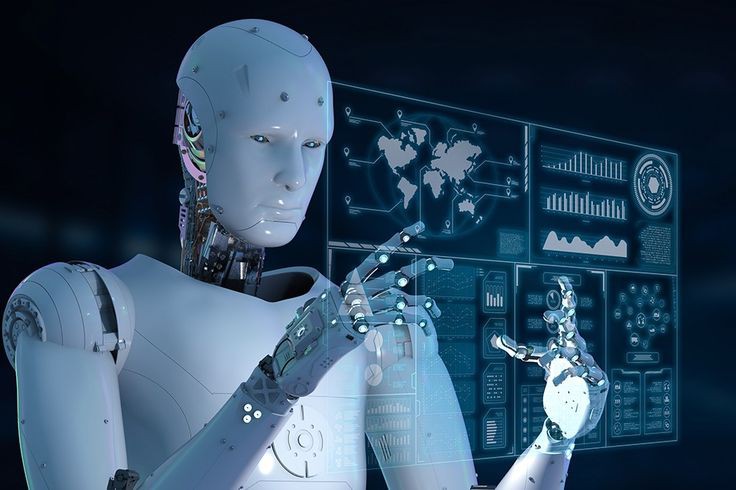In the ever-evolving landscape of manufacturing, technological advancements are revolutionizing capabilities and possibilities. These innovations are not just on the horizon—they are shaping the present and future of how products are designed, produced, and delivered. Here’s a look at some emerging manufacturing abilities that are driving industry transformation today.
Additive Manufacturing (3D Printing)
Additive manufacturing, commonly known as 3D printing, is revolutionizing traditional manufacturing processes. This technology allows for the creation of complex, customizable parts and prototypes directly from digital designs. From aerospace components to medical implants, 3D printing offers efficiency, flexibility, and cost-effectiveness compared to traditional methods. Its ability to produce intricate geometries and on-demand production is reshaping various industries.
Robotics and Automation
Robotics and automation are increasingly integral to modern manufacturing facilities. Robots are employed for repetitive tasks, precision assembly, and hazardous operations, enhancing efficiency and safety. Collaborative robots, or cobots, work alongside human operators, improving productivity and flexibility on the factory floor. Automation systems streamline production processes, reduce errors, and optimize resource utilization, paving the way for smart factories of the future.
Internet of Things (IoT) and Connectivity
The Internet of Things (IoT) is connecting machines, devices, and sensors within manufacturing environments, enabling real-time data collection and analysis. IoT technology enhances predictive maintenance, monitors equipment performance, and optimizes supply chain management. Connected factories use IoT-enabled systems to achieve greater visibility, control, and responsiveness, leading to improved decision-making and operational efficiency.
Artificial Intelligence (AI) and Machine Learning
Artificial intelligence and machine learning are transforming manufacturing through advanced data analytics and decision-making capabilities. AI algorithms analyze vast amounts of data to optimize production schedules, predict equipment failures, and improve quality control. Machine learning algorithms continuously learn from data patterns, enhancing process optimization, predictive maintenance, and product customization. AI-driven insights empower manufacturers to achieve higher levels of efficiency, quality, and innovation.
Advanced Materials and Nanotechnology
Advancements in materials science, including nanotechnology, are unlocking new possibilities in manufacturing. Nanomaterials offer superior strength, durability, and conductivity compared to traditional materials, enabling lighter and more durable products. Smart materials with self-healing properties or sensing capabilities are revolutionizing fields such as aerospace, automotive, and healthcare. Innovations in material science are driving sustainable practices and expanding the boundaries of design and functionality.
Augmented Reality (AR) and Virtual Reality (VR)
Augmented reality and virtual reality technologies are enhancing manufacturing processes, training, and maintenance activities. AR overlays digital information onto the physical environment, providing real-time instructions, schematics, or performance data to operators. VR immerses users in simulated environments for training, design reviews, and remote collaboration. These technologies improve accuracy, reduce errors, and accelerate learning curves, making them indispensable tools in modern manufacturing.
Supply Chain Digitization and Resilience
Digitization of supply chains is crucial for enhancing resilience and agility in manufacturing operations. Blockchain technology ensures transparency, traceability, and security throughout the supply chain, reducing fraud and errors. Digital twins replicate physical assets digitally, enabling simulations and predictive analysis for optimized logistics and inventory management. Supply chain digitization fosters collaboration, reduces lead times, and mitigates disruptions, ensuring smoother operations and customer satisfaction.
Sustainable Manufacturing Practices
The shift towards sustainable manufacturing practices is gaining momentum globally. Manufacturers are adopting eco-friendly processes, recycling materials, and reducing waste generation. Renewable energy sources and energy-efficient technologies are minimizing environmental impact while enhancing cost savings. Circular economy principles promote resource conservation and product longevity, contributing to sustainable development goals. Sustainable manufacturing practices are shaping a greener and more responsible future for the industry.
Human-Machine Collaboration
The future of manufacturing emphasizes human-machine collaboration, where skilled workers complement advanced technologies. Training programs and upskilling initiatives prepare workforce for digital transformation. Empowering employees with technology enhances productivity, creativity, and job satisfaction. Human intuition and problem-solving abilities combined with technological prowess drive innovation and competitiveness in modern manufacturing.
As manufacturing continues to evolve, embracing emerging technologies and capabilities is essential for staying competitive and driving innovation. From additive manufacturing and robotics to AI-driven analytics and sustainable practices, these advancements are reshaping the industry landscape. By leveraging these capabilities, manufacturers can unlock new opportunities, streamline operations, and deliver innovative solutions that meet the demands of today and tomorrow. The future of manufacturing is here, and those who embrace change are poised to lead the way towards a more efficient, sustainable, and interconnected industry.

